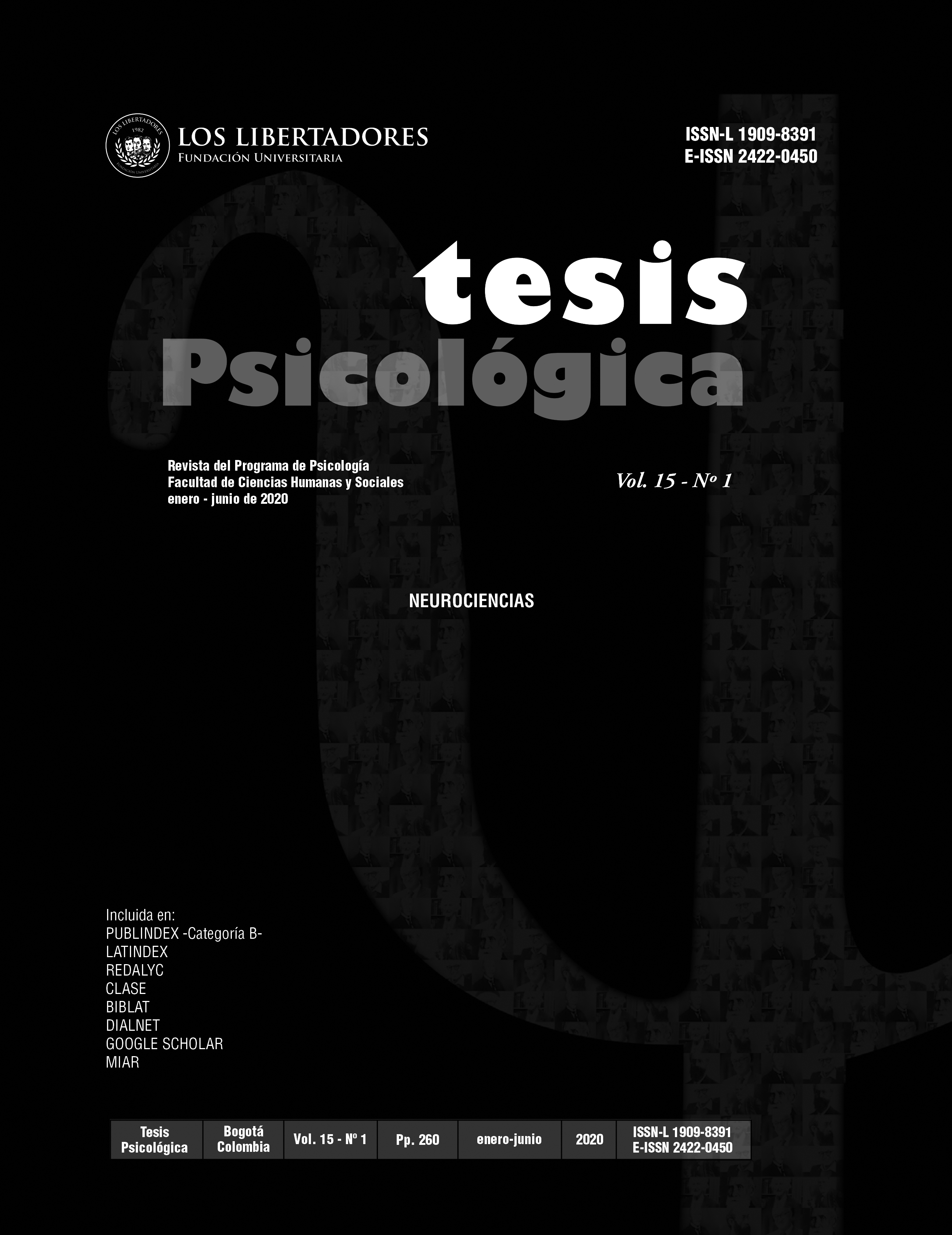Análisis de las funciones ejecutivas y la proficiencia en niños escolarizados de 6ª a 11ª grado de la ciudad de Bogotá
DOI:
https://doi.org/10.37511/tesis.v15n1a3Abstract
Background: The learning of a second language can favor the development of components of executive function such as: flexibility, abstraction and inhibitory control. Objective: The aim was to establish the relationship between the level of proficiency in the English language and the performance in tests of evaluation of executive functions. Methodology: 113 school children from the city of Bogotá participated. The neuropsychological tests Trail Making Test, Color Test and Stroop Words, Modified Wisconsin Card Classification Test and Verbal Phonological and Semantic Fluency Test were applied. Results: The results were processed with the statistical software JASP 0.9.0.1. No statistically significant differences were found between the degree of proficiency in the English language and the performance of the tests. A difference was found in the performance of the tests associated with the socioeconomic factor, but not a significant difference due to proficiency. Conclusions: The absence of a significant relationship between test performance and proficiency in the English language could be explained by the limitations of the study, such as the size of the sample and the measurement of proficiency.
Downloads
Downloads
Published
Issue
Section
License

This work is licensed under a Licencia Creative Commons Atribución-NoComercial-













